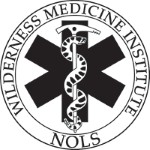EMS proposes mercy clause
The Battalion
By Sommer Bunce
Staff writer
The Emergency Medical Services (EMS) is seeking Student Senate legislation for a mercy clause to make students immune from University punishment when they call EMS seeking assistance for alcohol-related problems.
Students who dial EMS for medical help in alcohol-related cases on the Texas A&M campus may face repercussions from University officials, such as suffering possible losses of scholarships and funding.
Officers from the University Police Department (UPD) monitor calls made to EMS and regularly respond to those involving students seeking emergency care for alcohol poisoning or overdose. UPD follows that procedure to ensure that EMS workers are safe when dealing with inebriated students, said UPD Director Bob Wiatt.
UPD does not issue citations to those in need of emergency care, but officers make a notation of the event in their reports, Wiatt said. The notation is then sent to the Department of Student Life, where student records are kept on alcohol-related occurrences.
Each time a student violates University rules on alcohol use, a letter is sent to the student's parents, said Director of Student Life Brent Paterson. The letter describes health issues related to drug and alcohol use, and the student is informed of the process, he said.
Violation of any University rule that leads to the suspension of a student results in that student not being in good standing with the University, as outlined in the A&M student handbook. Such standing with the University may, in some cases, result in A&M withdrawing a University scholarship during the student's suspension, Patterson said.
EMS Chief Jack Van Cleve voiced his concerns before the general assembly of the Residence Hall Association last week. Van Cleve, a senior community health major, said the mercy clause exists on other college campuses and protects students seeking emergency care for alcohol-related incidents.
Van Cleve met with Chad Wagner, speaker of the Student Senate and a junior political science major, who is sending his concerns to the committee tonight. Senators and members of the Student Services Committee are investigating the issues to determine whether legislation is in order.
Van Cleve's concerns arose in the spring after he received a phone call from the mother of a student whom EMS had treated for high levels of intoxication. The mother questioned the policy of calling police to the scene and told him that her son could lose his ROTC scholarship because of the police involvement.
Van Cleve said the EMS crew, in that instance, had not requested UPD assistance. However, officers are present for the EMS crew's safety and protection, Van Cleve said.
Wiatt said the emergency crews and UPD have a good relationship.
"The bottom line is, we're out there and we're going to continue to do it, and the [emergency medical technicians] want us there because some things can get a little violent."
Concerns about police involvement and possible University punishment are resulting in fewer students calling EMS services, Van Cleve said.
People sometimes delay their calls to EMS, waiting longer before calling an ambulance because they hope their friend will get better and they do not want to jeopardize the student's standing with the University, Van Cleve said. But in such cases, by the time EMS arrives, the student has only gotten worse.
In other instances, students bypass EMS altogether and transport sick individuals to the emergency room themselves. Again, whether the students are on campus or off, an ambulance could have provided needed service to alcohol- poisoned unconscious individuals, Van Cleve said.
Van Cleve has also heard calls in which someone needing help asks questions whether a police officer will be sent to the scene and opts to not have an ambulance sent when the dispatcher informs the caller of UPD and EMS's mutual policy to have officer assistance in alcohol-related cases.
"Our main goal is to make people aware that students can be deterred from contacting EMS," Van Cleve said. "It's nothing that's widespread, but we're looking for policy changes. We want something to protect students when they are doing the right thing and calling EMS."
Wagner will announce the issue at the Student Senate meeting tonight. The Student
Services Committee will address Van Cleve's concerns in its regular meeting Sunday night. If senators and committee members vote to create a piece of legislation in the form of a bill or resolution, the item will be up for its first reading before the Senate on Nov. 15.
Also on the Student Senate agenda, following the confusion surrounding the Spring 2000 yell leader elections, the Senate considered a bill that would clearly define a majority vote in the election regulations.

